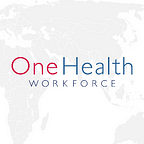Strengthening a global workforce to prevent, detect, and respond to infectious disease threats
The One Health Workforce (OHW) project is developing a health workforce that is prepared to prevent, detect, and respond to the threat of infectious diseases around the world. The project is part of the United States Agency for International Development (USAID) Emerging Pandemic Threats 2 (EPT2) program, which focuses on cross-sectoral disease surveillance, training, and outbreak response. Teams at the University of Minnesota (Project Lead) and Tufts University provide support for two regional university networks, the One Health Central and Eastern Africa (OHCEA) network and the Southeast Asia One Health University Network (SEAOHUN). OHW is able to leverage these established university networks to create a sustainable transformation in the regions’ health workforces.
One Health Across the Globe
Recent and on-going threats have showcased a critical need for health workers that are prepared to manage diseases that cross human, animal, and environmental health sectors. The 2014 emergence of the Ebola virus in West Africa posed a global threat to human and animal health, as well as national security and economic prosperity. The epidemic called for a workforce that not only had the technical skills and competencies to work well within their own discipline and sector, but also possessed the skills to effectively and efficiently work across sectors and disciplines to manage an infectious disease outbreak on a global scale.
The One Health Workforce project supports activities administered by OHCEA and SEAOHUN that address these multi-disciplinary competency needs. OHW coordinates with experts in medicine, nursing, public health, education and development, environmental health, and veterinary medicine, among other disciplines. Current and future One Health workers are taught with innovative curricula and programs in classrooms, online and in the field. Ultimately, OHW is creating a workforce with a new generation of One Health leaders with the necessary technical expertise and practical skills to address emerging infectious disease threats.
Developing the Future One Health Workforce
The One Health Workforce project has five main objectives that guide the project’s activities and initiatives.
One Health Networks
The One Health Workforce project’s university network partners have implemented a wide range of activities to support the training of in-service and pre-service One Health professionals through innovative, interdisciplinary, and experiential education opportunities, as well as enhanced curricula, programs, and courses.
One Health Central and Eastern Africa
The One Health Central and Eastern Africa (OHCEA) network is a network of sixteen Public Health and Veterinary Higher Education Institutions that are located in eight countries in the Eastern and Central Africa region, a region that includes the Congo Basin that is considered to be a “hot spot” for emerging and re-emerging infectious diseases. As a One Health network, OHCEA has a critical role in creating the future healthcare workers of Africa. The Secretariat for OHCEA was created in 2010 and continues to tackle global health challenges as the main operations center for the network. OHW has supported OHCEA with a number of activities over the past year. University activities include integrating new classroom methods, developing applied training, cultivating new skills and career paths, and creating One Health student clubs. OHCEA also partners with local governments to strengthen the current workforce with cross-sectoral training, One Health leadership, risk analysis, continuing professional education, and developing international certificates. These activities are shaping Africa’s current and future One Health leaders.
Southeast Asia One Health University Network
The Southeast Asia One Health University Network (SEAOHUN) is a network of 14 faculties and schools of medicine, nursing, public health, and veterinary medicine from 10 Southeast Asia universities in Indonesia, Malaysia, Thailand, and Vietnam. SEAOHUN serves as a dynamic partner for building One Health capacity within the Southeast Asia region, another “hot spot” for emerging infectious diseases. The regional network was first founded in December 2012 and is now based in Chiang Mai, Thailand. OHW supports SEAOHUN with activities focused on strengthening Southeast Asia’s One Health workforce. Activities include developing innovative graduate and continuing education programs, establishing field experience sites for students and faculty, and embedding One Health Core Competencies into the classroom. These activities are preparing the healthcare workforce to respond to emerging and re-emerging infectious and zoonotic diseases in Southeast Asia.
